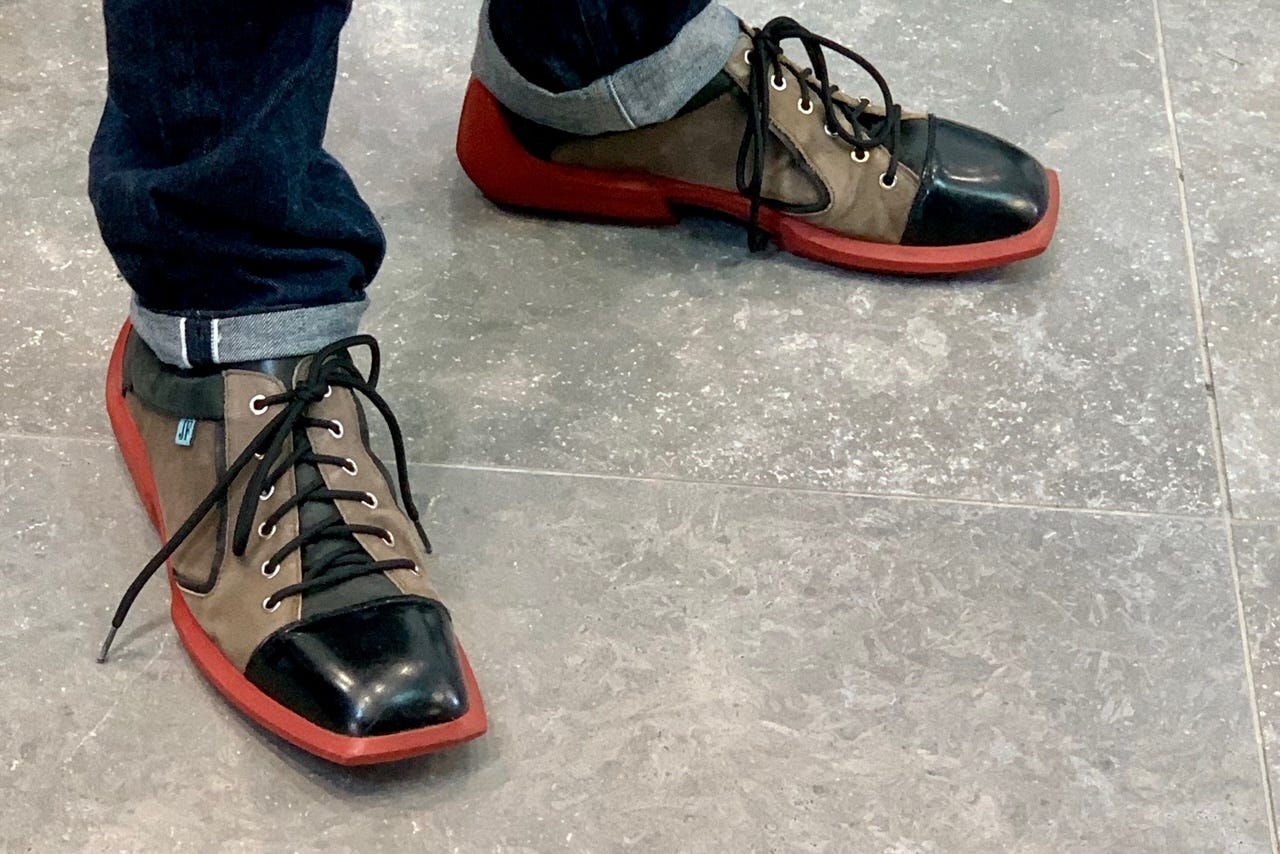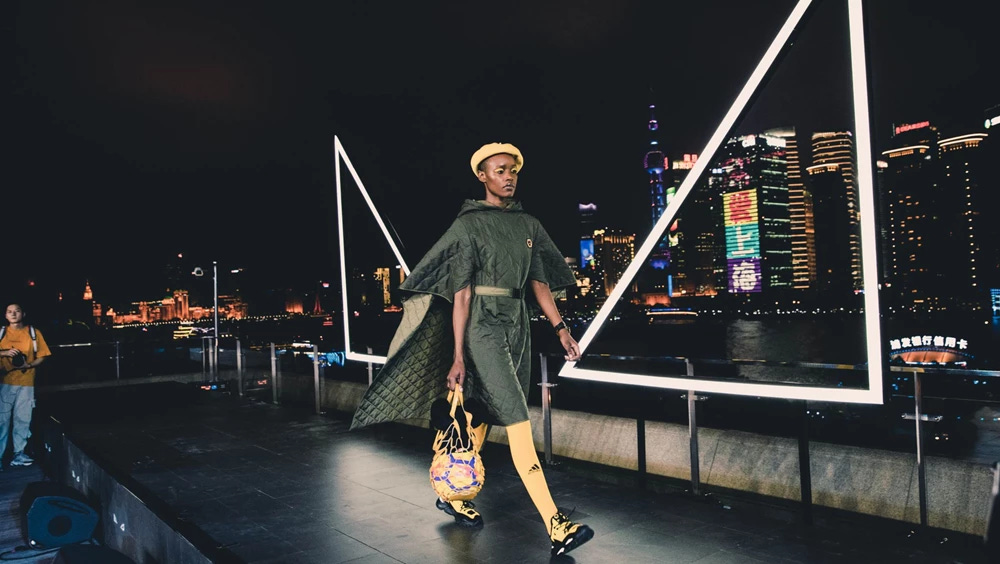It was the shoes that put me in my place. Queuing to enter the SportsPro Live jamboree at The Oval last week, I scanned the footwear of my fellow delegates and realised my traditional black leather lace-ups marked me out as the dinosaur I am. If not literally the oldest person at the conference, then mentally as good as. Reader, incorrectly shod as I was, I dived out of my comfort zone into all things metaversical to scope your future engagement with sport.
It would have been easy to fill my two days in familiar territory, absorbing lessons on the development of women’s football, the organisation of major events and the latest trends in digital marketing. But the siren called me towards the virtual reality rocks. And not just me, for sessions on the metaverse and the wonders of Web3 were packed.
Perhaps comforted by the sight of an old bloke in a suit, who was bound to be the least well-versed in the new age, I was frequently asked in breaks between sessions whether I ‘got’ it yet. There was palpable relief when I confessed I didn’t - they were not alone! But coming away from The Oval, I think I now ‘get’ the tech (not how it works of course, but what it does). I just don’t ‘get’ the extent of sport’s current frenzy about it.
Most illuminating was a joint presentation by LaLiga, the top tier of Spanish football, and their metaverse partners, GreenPark Sports. The plan is a digital world that goes beyond simple mirroring of the physical, a world in which fans interact online during LaLiga matches - a double screen existence - competing against each other to predict the ebb and flow of the game.
“Welcome to the virtual sports universe of GreenPark – the first mobile proving ground for sports fans. It’s time to suit up for your favorite team and go head-to-head against your rivals in epic battles to win Fanergy. Now you can prove, once and for all, that you’re the Most Valuable Fan. Game on.” GreenPark website
Their target markets are gamers and collectors, both tribes enticed by the lure of virtual prizes that they can flaunt in the metaverse. How though to monetise these ‘dungeons and dragons’ types? A cited example was attendance at a real LaLiga match ‘unlocking’ a virtual asset that can’t be won any other way. Hard though to see that adding up to a big pile of bitcoin or euros. Daunting too to contemplate the competition from the global esports giants who will doubtless dominate the VR gaming market.
Which makes the strategy of Wolverhampton Wanderers FC intriguing. Wolves’ head of marketing & commercial growth outlined the eighth-placed Premier League team’s ambition to be “the ultimate challenger club” with a “we dare to be different” ethos. It is trying to stretch its brand across the leisure world, launching a record label and a high end fashion line aimed at the Chinese market (land of the club’s owners, Fosun International).
Neither of these brand extensions got my heart racing as I heard them explained. But then I’m not in the market for a pair of gold and black strides. Wolves esports, however, is another matter. Ten professional teams have been set up playing across a range of major game formats. They have a claimed 20 million followers in China, helped by the recruitment of top player talent (check out King Pro League star Captain Fly - I merely pass it on…). Needless to say, they play in gold and black kit with the Wolves logo.
The crossover to Wolverhampton Wanderers FC is more tenuous than LaLiga’s creation of its own virtual universe, but I can envisage real cash being generated by, effectively, the licensing of the Wolves brand across a substantial esports enterprise. Provided, of course, that enough financial muscle is devoted to both parts of the empire - and that neither is let down by the on-pitch or in-arena performance of the other.
Fosun International has a market capitalisation on the Hong Kong exchange of around £7 billion. For all Wolves’ broad ambitions, it seems unlikely that its parent can spare the wherewithal to take it beyond ‘challenger’ status, but there’s enough about the model to suggest that it will be a disruptor over the coming years.
Compare Fosun’s valuation - of which the football club is but a small part - with the price of Chelsea FC, up at around £3 billion. Media outlets have recently been running a comment from Todd Boehly, leading what is now said to be the preferred bidding consortium, that he made in a Bloomberg interview a few years back.
“When I was growing up [we had] Pac-Man, Donkey Kong, but certainly I didn’t know about Man United, I didn’t know about Chelsea, I didn’t know about Tottenham. Kids these days are fully aware of what’s the best and the Premier League is the best. I continue to believe there is global opportunity for the best clubs.”
By my reckoning, 46-year old Boehly was a pre-teen when Pac-Man and Donkey Kong took off, so highly impressionable. If his target is today’s impressionable youngsters with parallel virtual existences stretching ahead of them, laced through with e-games, then the valuation placed on the Chelsea brand starts to feel just a little less crazy.
Buckle up then for your [children or grandchildren] (delete according to your age) hounding you in future for a new skin of their team of choice, assuming of course that you’ve already shelled out for their VR headset and other necessary hardware. No longer demands for Panini stickers but their digital equivalent, and not just common or garden non-fungible tokens, but customisable ones to enhance their status and sense of self-worth in the metaverse.
Whether you can then persuade them to venture out into the wind and rain to join you at a real game in the physical world is all down to you and your ability to sell the attractions of heritage sport.
Cut the kite string
Things always get grubby in the final stages of a competitive takeover bid. Nerves are frayed. Deadlines are tested by late tactical jinks. Likely losers in a winner-takes-all contest start bleating. The Chelsea sale is no different. Ratcliffe’s post-deadline declaration of interest - ‘look at me’ behaviour or a stroke of genius that deserved a better reception? Possible change of heart from Abramovich on writing off his £1.6 billion loan that always looked to be a problematic factor. Urgh!
But most tawdry of all is the suggestion that the UK government might snaffle a big slug of the proceeds to pay for grassroots football pitches rather than ensure every penny is spent in Ukraine. Let’s hope this is just kite-flying from some politico who has imbibed too much cheap wine at a No. 10 work event. If so, pass some scissors and let’s cut that kite string.






